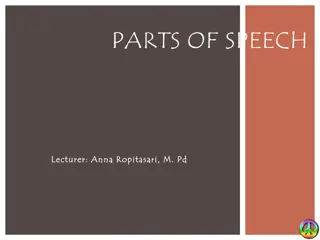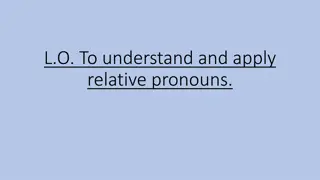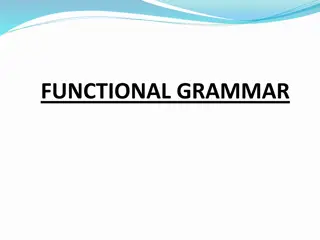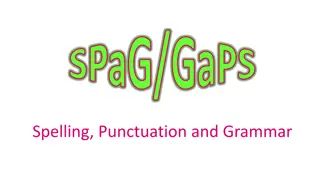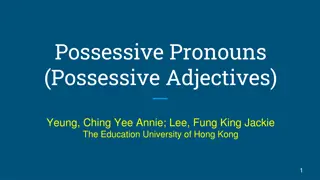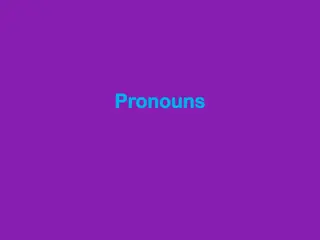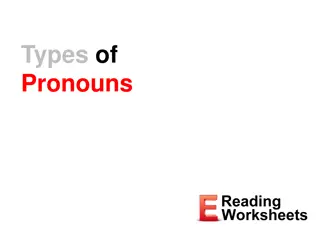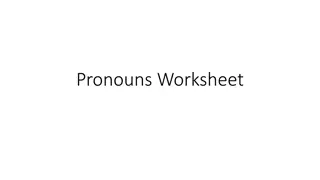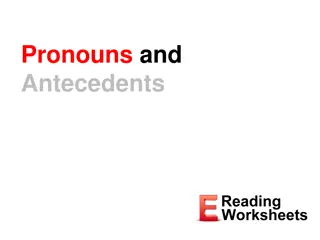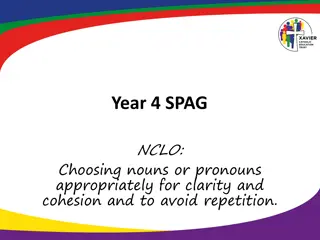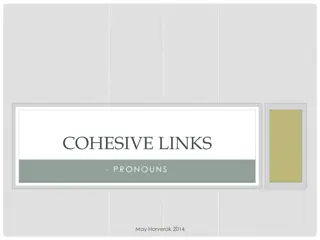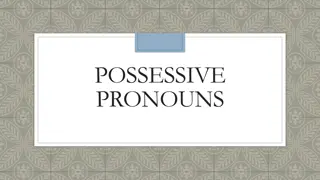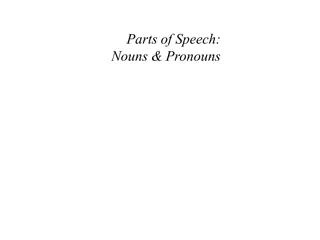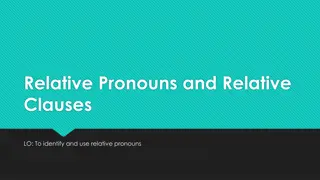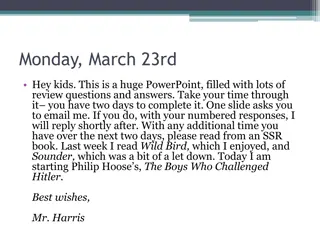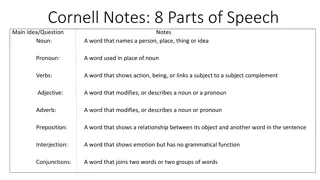Understanding Possessive Nouns and Pronouns in English Grammar
Explore the usage of possessive nouns and pronouns in English grammar through examples of singular and plural possessive forms. Learn how possessive pronouns replace possessive nouns to indicate ownership effectively in sentences. Enhance your understanding of forming possessive constructions and applying them correctly before nouns and independently in sentences.
Download Presentation

Please find below an Image/Link to download the presentation.
The content on the website is provided AS IS for your information and personal use only. It may not be sold, licensed, or shared on other websites without obtaining consent from the author. Download presentation by click this link. If you encounter any issues during the download, it is possible that the publisher has removed the file from their server.
E N D
Presentation Transcript
Possessive Nouns: complete sentences using singular and plural possessive nouns. Possessive Pronouns: complete sentences using possessive pronouns before the noun an independently. Possessive Nouns: We will write Possessive Pronouns: We will write
Why?: 1. We use possessive nouns to show possession. 2. We add s s s. 3. We add just the apostrophe ( ) nouns that do end in s s. Why?: s to nouns that don t end in ( ) to
Nouns Nouns Owner + Noun (belonging) Nouns that do NOT end in s= s (singular) Nouns that end in s= (plural)
Singular Formula Singular Formula: Singular noun+ s + noun + verb + finisher. Example: The bicycle s front tire is flat.
Plural Formula: Plural Formula: Plural noun+ noun + verb + finisher. Example: All the toddlers tricycles have three wheels.
Why?: We use possessive pronouns to replace possessive nouns and show ownership. Before the noun, the pronoun replaces the possessive noun. Independently, the pronoun replaces the possessive noun and the object. Why?:
Pronouns Pronouns Who does it belong to? Who does it belong to? Before noun Before noun Independently Independently Me my ________ mine You your _______ yours He, she, it his ___, her ___, its ___ his, hers, its Us our _____ ours Them their _____ theirs
Before the noun Before the noun Old sentence: The neighbor s dogs bark every night. Formula 1: Possessive Pronoun + noun + verb + finisher. New sentence: Their dogs bark every night.
Independently Independently Old sentence: Jessica s cat is the one with the gray stripes. Formula 2: Possessive Pronoun Possessive Pronoun + verb + finisher. New sentence: Hers is the one with the gray stripes.




